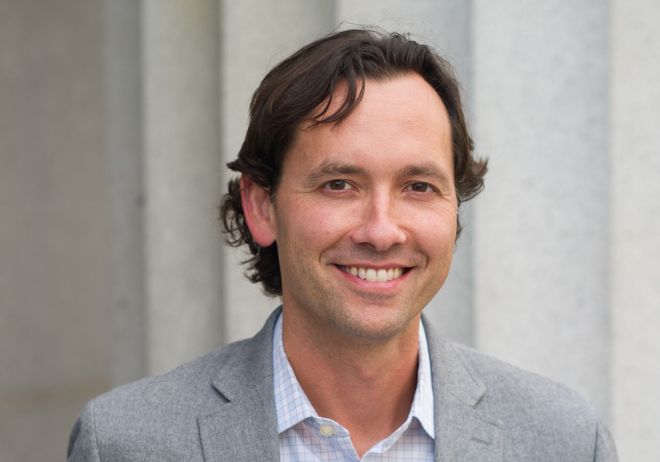Edward Miguel is Oxfam professor of Environmental and Resource Economics at University of California, Berkeley. As part of the Eilert Sundt 200 year anniversary, he is invited by the Department of Economics to hold the lecture: “Climate, conflict and economic development: The next 50 years” on October 19th.
Edward Miguel has spent a great amount of time doing fieldwork in Sub-Saharan Africa. He is concerned about how climate change might affect Africa’s steady economic progress and its levels of conflict. A large majority of the population in African countries are farmers and solely dependent on their crops, which in turn depend on rainfalls. With rising temperatures and more droughts, these farmers are left without an income. Climate changes thus have huge implications for African economies. Looking 50 years into the future, Edward Miguel sees two different scenarios.
Worst case - best case

- The worst-case scenario is really quite pessimistic when we consider climate change. That is the case for both conflict levels and economic development, where extreme temperatures and weather events could make agricultural activity unprofitable in many regions that are dependent upon it today. The subsequent effects on conflict could be dire. We might even imagine, as a very bad case, an outcome in which multiple neighboring countries fight over the remaining fertile land, with unthinkable humanitarian consequences.
Miguel also gives us a more hopeful view of the future.
-In terms of more optimistic outcomes, there remains a slim possibility that the adoption of renewable energy sources will accelerate and moderate global warming. In a similar manner the development of new technologies, for instance in the agricultural sector, can make the transition to a warmer planet more bearable. Nevertheless, this all still lies in the realm of the hypothetical, he says.
The Berkeley professor published the book “Africa’s turn” in 2009, in which he closely follows signs of economic turnaround in Sub-Saharan Africa through a decade. Still, Miguel maintains that the region is facing many challenges in the years to come that may threaten this development. Something Miguel has witnessed firsthand in his fieldwork in Kenya, Sierra Leone and Tanzania.
Young populations
One of the main challenges are the very young populations that will lead to a dramatic increase in the working age population in Africa in the coming decades.
A very large share - perhaps a quarter - of the world's working age population will be African by 2050 or 2060.
-What investments can be made today to make sure that this surge in the African youth population will be healthy, productive and secure in the coming decades? Moreover, how can we make sure that increasingly scarce land resources, and environmental degradation, do not derail recent economic progress, Edward Miguel asks.
Rich countries must reduce emissions
Miguel urges the international community to assist Sub-Saharan Africa in order to fulfil its opportunities and secure economic progress.
- International cooperation will have to take many forms. For one, rich countries as ourselves need to stop emitting so much CO2!
What is more, the oil producing countries should work to accelerate the shift to renewable energy, even if it costs us in terms of our own living standards.
This is an issue both for the US, my home country, and for Norway, of course, Miguel says.
He outlines two other ways that the international community can help. The first consists of increasing foreign aid that can weigh up for missing global insurance markets. By providing assistance in years of extreme temperatures and weather events (e.g. in years of drought), the international community can accommodate African countries in making it through these tough times. There is already some foreign aid of this kind, but in Miguel’s opinion, it is not sufficiently responsive to the year-to-year needs of the population.
His second suggestion deals with investments in the agricultural sector.
-We must invest more in new agricultural technologies that will be resistant to the extreme climate conditions that are already becoming more common throughout Africa. One example is the development of new varieties of drought resistant crops. This research endeavor is already underway but in my view at far too small a scale. Far more public investment in this area is required to meet the needs at hand.
Requires collaboration
As an economist, Miguel believes his own discipline can play a part in finding solutions to the big climate issues. As economists are good at measuring, diagnosing, and extrapolating to the future, they can shed light on historical patterns and their likely implications. Still he underlines the need for cooperation between different disciplines as well as parts of society.
-What we economists are unable to solve are the underlying political problems that have led to the slow response to the global climate crisis. Nor are we in the business of developing the new renewable energy technologies that will be essential in the 50 coming years. With a challenge of this magnitude, it is only through collaborative work - among scientists, engineers, economists, civil society, and governments - that necessary change will occur. That sounds like a cliché, I am sure, but it really is true in this case.
Moving the ball forward
So, what does Edward Miguel have to say to young people that feel powerless in the face of tremendous environmental challenges?
- We all make a difference through the way we choose to live our own lives - by the choices we make as consumers, citizens and voters. Young people who want to work with the challenge of climate change should know that there are literally dozens of different ways they can get involved in the movement, through research, activism, and even by going directly into politics to bring their issues to the forefront. I suppose we are all small and powerless as individuals, but by joining hands and putting our weight behind important causes, together we are moving the ball forward.
Video
Watch Edward Miguel give a TED talk on climate, conflict and African development [Youtube]
